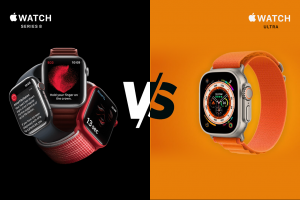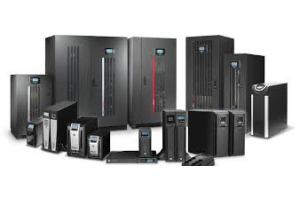Tablet vs notebook

Modern offices and workspaces are brimming with gadgets that play a key role in the productivity and resource efficiency of organizations. Laptops, notebooks, and tablets, among others, are a few devices that are become integral to every setting. Laptops are deployed where there is a requirement for massive power and performance for carrying out creative and professional tasks. Notebooks and tablets, on the other hand, are generally used for performing day-to-day routine tasks including updating websites, reviewing blogs, responding to emails, reading books, watching videos, taking notes, and more. They can be used for multiple ends like increased mobility, improved collaboration, better customer service, effective sales and marketing, data collection and analytics, inventory management, remote work, and monitoring.
Both notebooks and tablets offer distinctive benefits and sometimes, it becomes very hard for the manager to decide which device would provide the most bang for his buck. Here is some general guidance that would help you make an informed decision in this regard.
Table of Content
What is Notebook?
A notebook is just another type of computer that is compressed into a very small form factor. Notebooks are known as mobile personal computers as they represent the advancement in functionality, power, and performance. Users of notebooks can perform all functions accessible on desktops in light, portable, and compact form factors. In other words, notebooks are smaller versions of computers.
Advantages of Using Notebooks:
Notebooks provide distinctive advantages.
Portability and Mobility:
Mobility is one of the most important factors responsible for the popularity of notebooks. They are easy to place within a briefcase or even in a handbag. They hardly weigh 5 pounds or slightly more and have a thickness of 3 inches or less. These devices make it easy for professionals to take their work where they go whether it is in meetings, on a business trip, working from different locations, or on an airplane.
Versatility:
Notebooks are extremely versatile and can meet the different needs of businesses. They are designed in a way to perform multiple tasks including word pressing, spreadsheet calculations, video conferencing, and multi-media production. Some notebooks are even equipped with a touchscreen which provides users with interactive plateforms for creative tasks as well.
Speed and Performance:
Notebooks are provided with processors having 2.1 GHz or more which is enough for word processing, video designing, or other moderately intense tasks. With this processing power, multi-tasking is also feasible you can run multiple applications simultaneously without any impact on performance.
Keyboard:
The keyboard which is built-in ensures that notebooks are extremely productive. You can type and perform other tasks related to doc files.
Disadvantages of Using Notebooks:
Like every IT gadget, notebooks suffer from some disadvantages as well:
Cost:
Since all hardware components of notebooks are specially designed in a way to place them in a small form factor, notebooks tend to be expensive in comparison with desktop computers.
Shorter Battery Life:
Most notebooks come on the market with 6-cell batteries. This battery can support relatively 2 to 3 hours. In case you are performing power-intensive tasks like graphic designing, video playing, or likes, the battery life would further reduce. In addition, the battery drains out quickly as well.
Weight:
Though notebooks are light-weighted and can be carried in a small briefcase or handbag, they are still hard to carry in comparison with tablets. Notebooks are generally carried in bags to avoid vibration or shocks.
Overheating:
Notebooks are vulnerable to overheating in particular when you are using resource-intensive applications or extended use of the device. This overheating can have an adverse impact on performance or can lead to damage to some components as well.
Tablets:
Tablets are smaller and sleeker versions of computers without a physical QWERTY keyboard attached. The main input source is a touchscreen or they are packaged with a stylus that works as a pointing device or as a pen to enter text. Tablets are also equipped with handwriting recognition software that can accurately enter text without minimum typo errors. There is an option for the onscreen keyboard as well but it is very hard to type on that.
Advantages of Tablets:
- Tablets are smaller in size and lighter in weight and can be placed within a pocket as well.
- They have a touchscreen that makes certain tasks easy like reading documents, browsing the internet, watching videos, sending/receiving emails, and more.
- Tablets are effective teaching and note-taking tools that come as handy in conferences and meetings.
- They have much longer battery life than notebooks and laptops. This feature helps professionals work on tablets for an extended period of time.
- Tablets support mobile connectivity such as 4G or more which enables users to remain connected while traveling.
- Cost-effectiveness is another major advantage of tablets. They cost much less than laptops or notebooks.
Disadvantages of Tablets:
Tablets also lack some serious capabilities and suffer from certain limitations:
- First, tablets have very limited storage capacity in comparison with desktops or laptops. This limited storage capacity makes it harder for users to store large files or media libraries.
- Secondly, tablets don’t provide enough processing power, so they are not suitable for processor-heavy tasks like video editing or graphic designing.
- Thirdly, tablets have limited connectivity with other devices. They don’t have USB or HDMI ports that are required for connection with other devices.
- Fourthly, they are prone to drops, spills, or other accidents. They are prone to physical damage.
- Lastly, they have limited multi-tasking capabilities which means they are not suitable for creative and higher-end professional tasks.
How Can Morgan Ingland FZ LLC Help You?
Morgan Ingland FZ LLC is a leading IT firm in the Middle East and beyond dealing in IT products and services. Our portfolio is vast and covers everything you need to run your offices and businesses. We specialize in every kind of IT product and service including notebooks and tablets and their accessories like spare part keyboards, notebook trays, notebook lift stands, and spare part batteries, among others. Furthermore, our solution designers are working day in and day out to provide our valued customers with the best-in-the-market solution designs that are tailor-made and accommodative of their operational and budgetary needs.
We are committed to serving you day in and day out. Feel free to contact us at +971 72091222 or email us at marketing@miatlantic.ae for further any kind of end-to-end solution design you demand.






